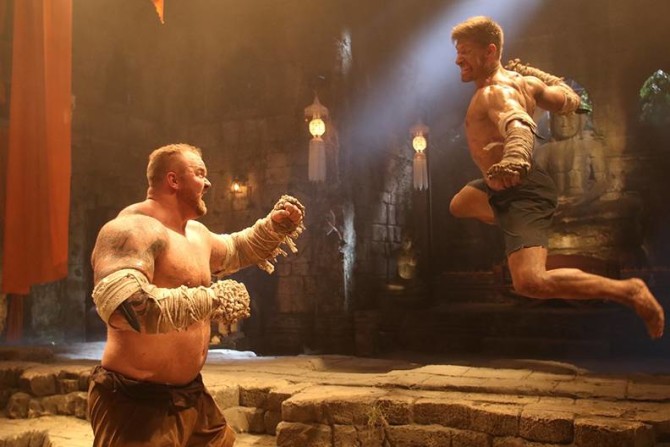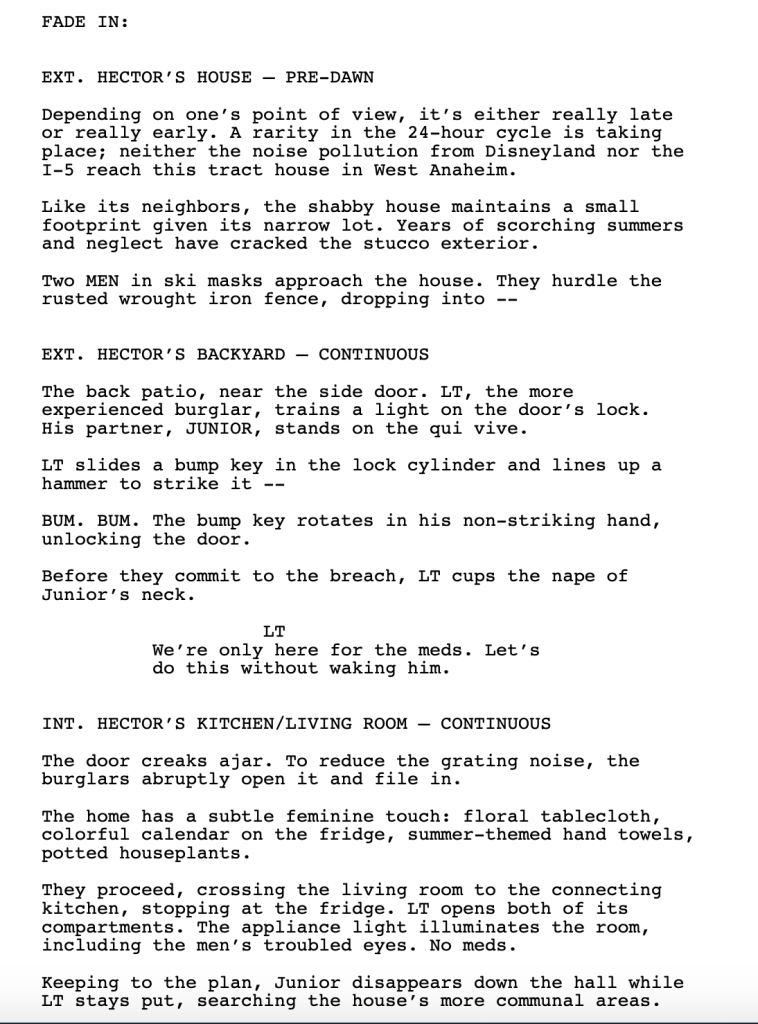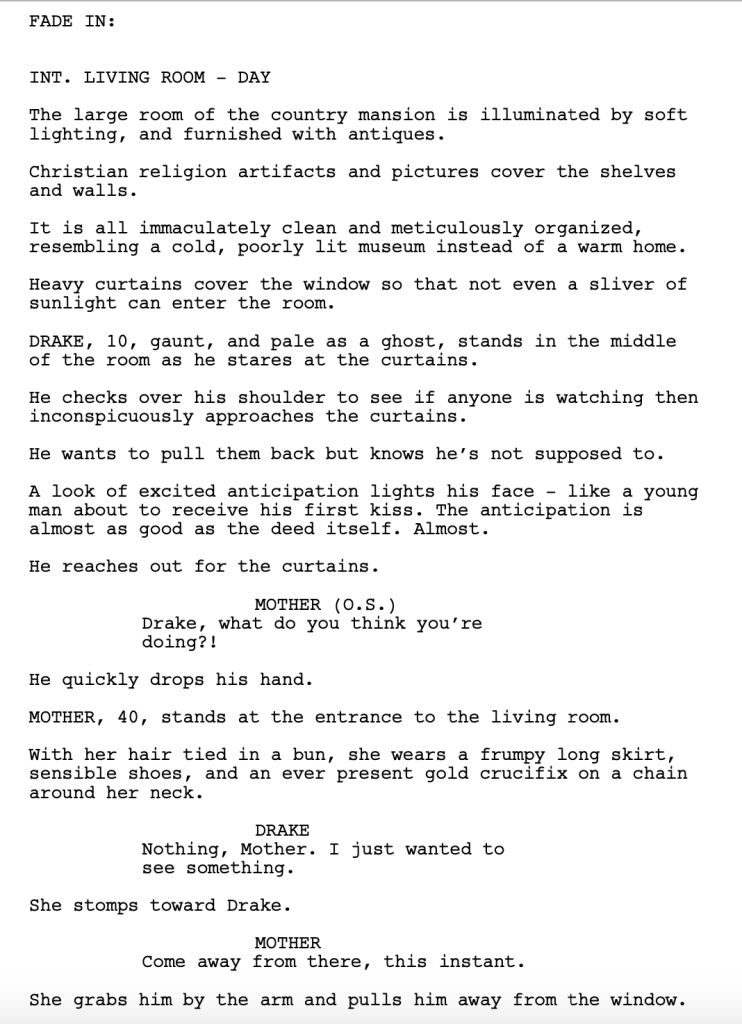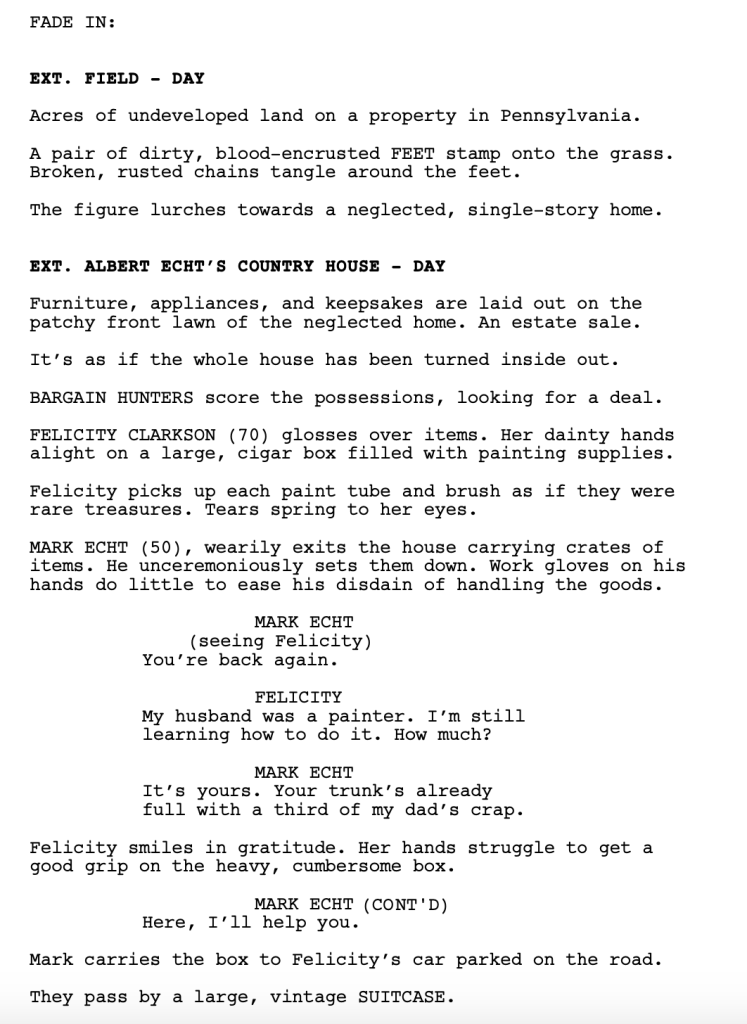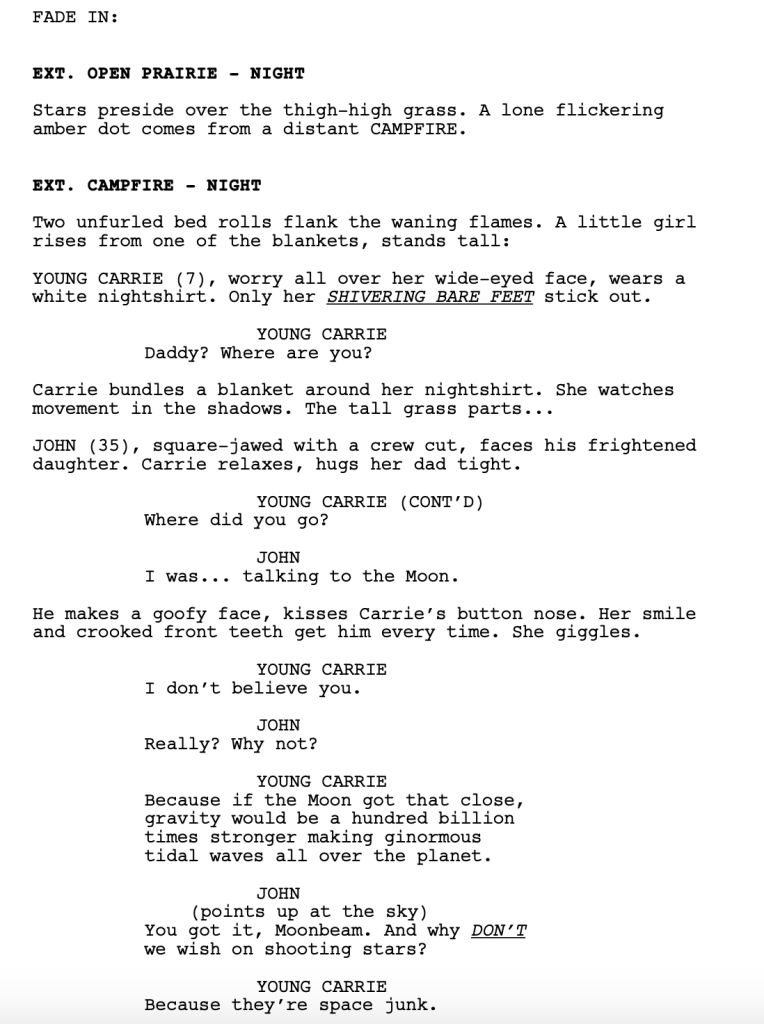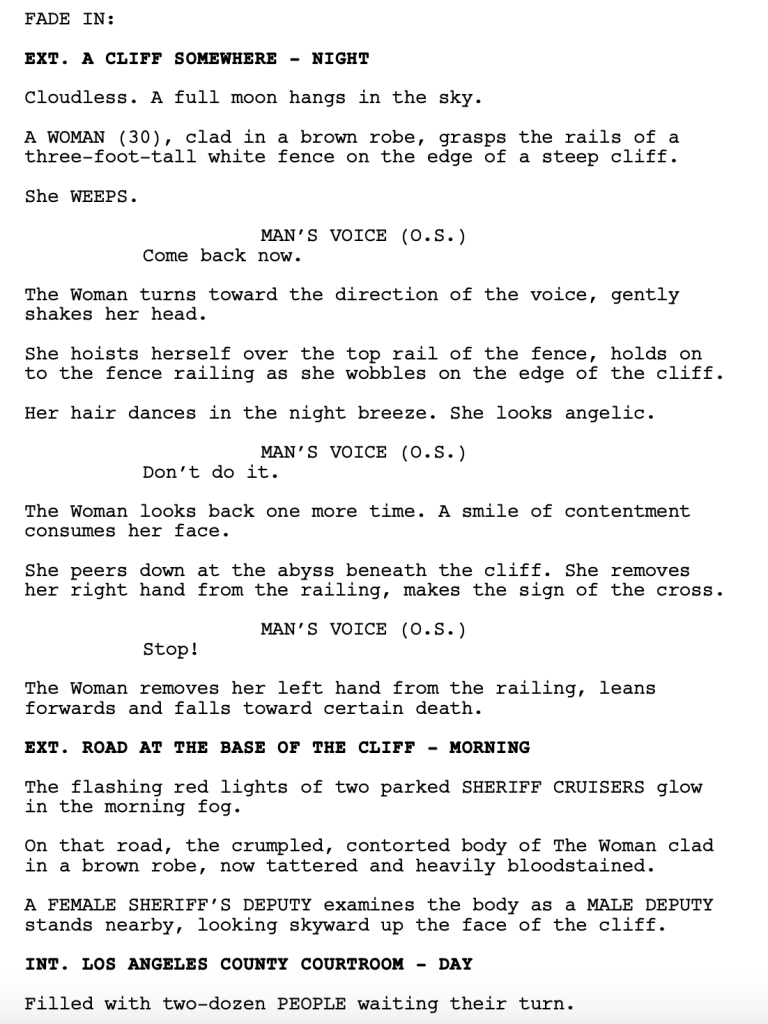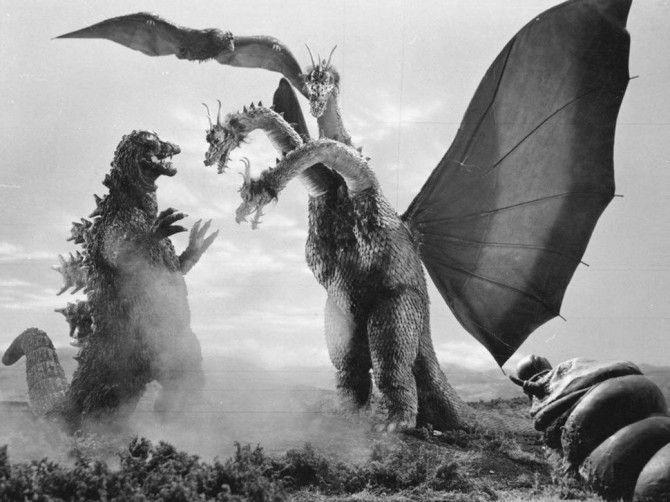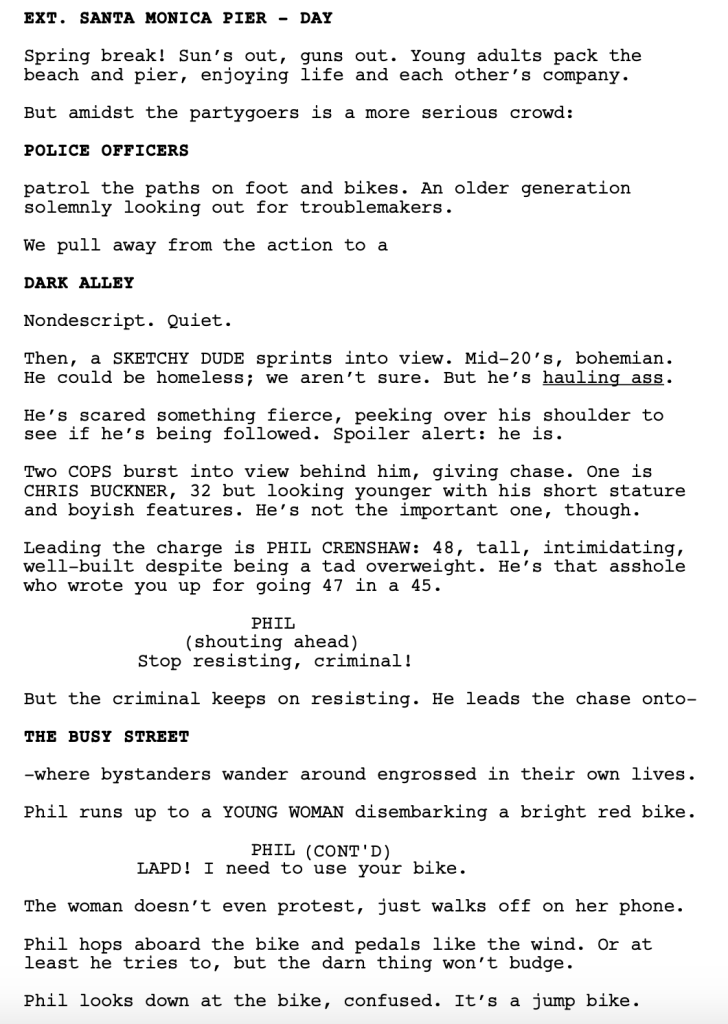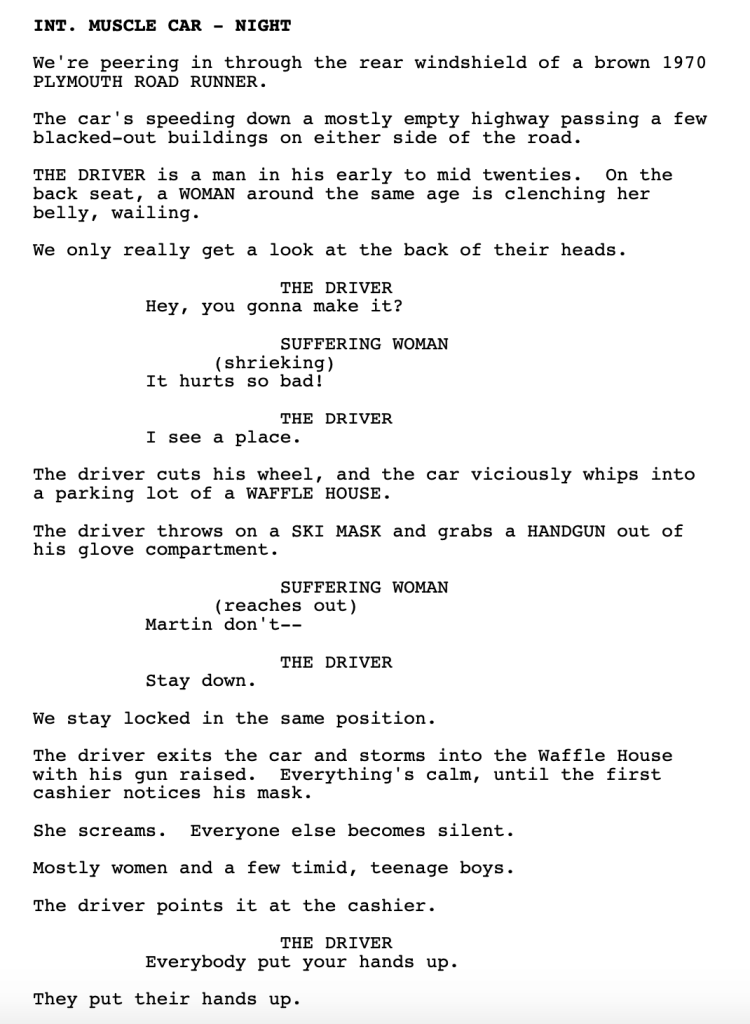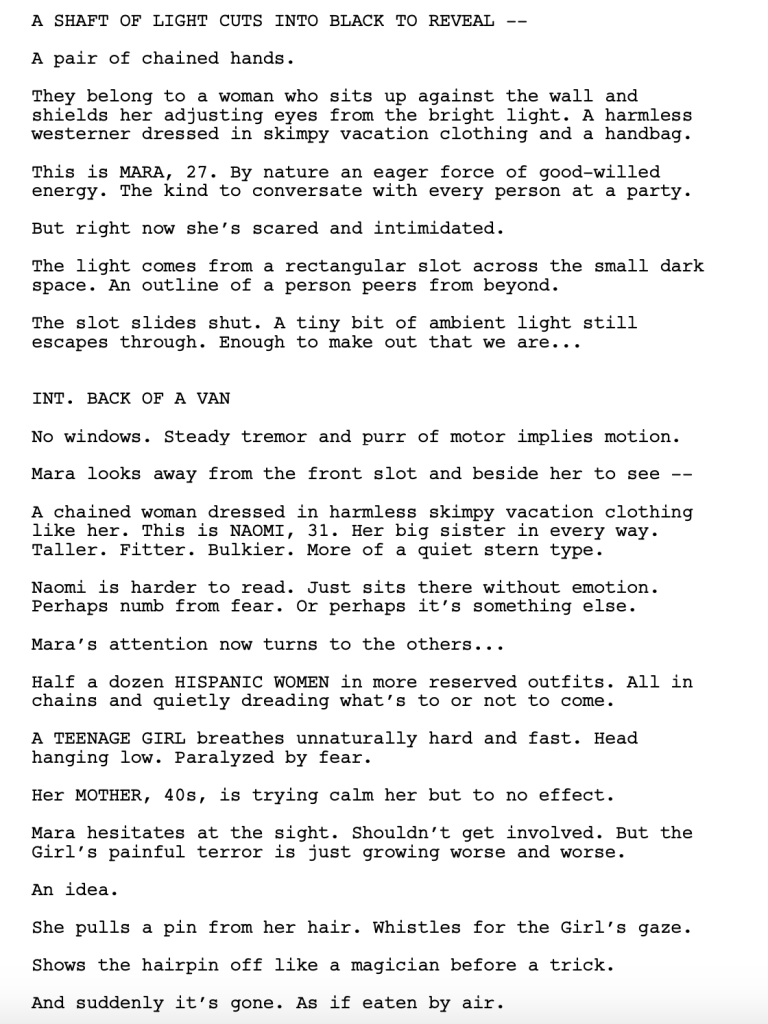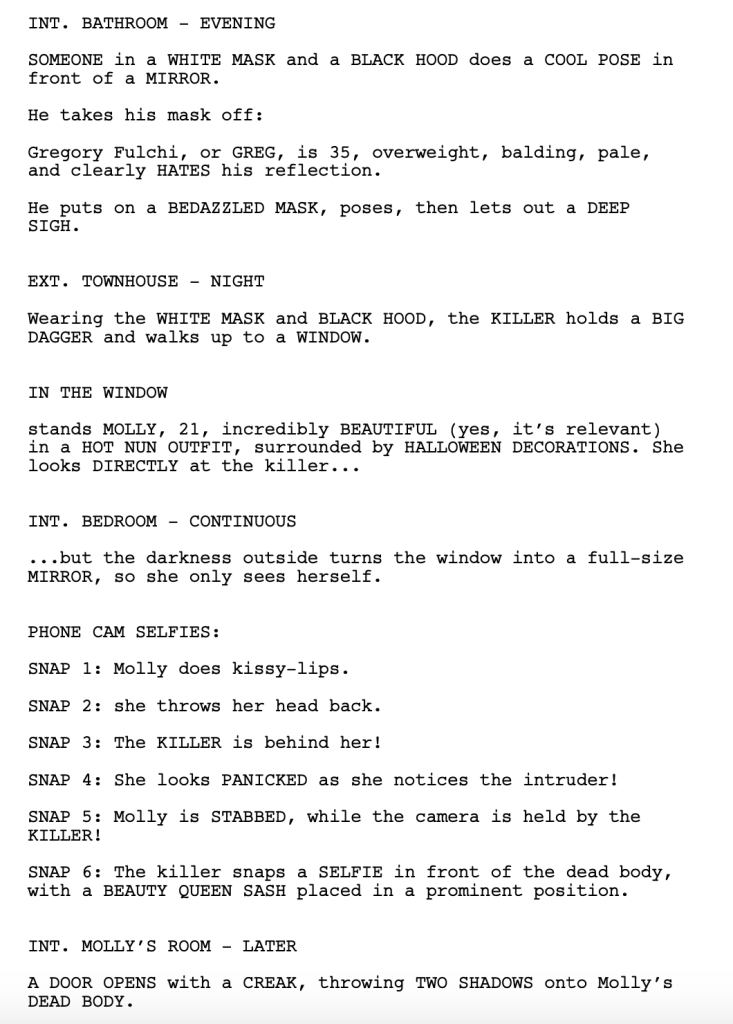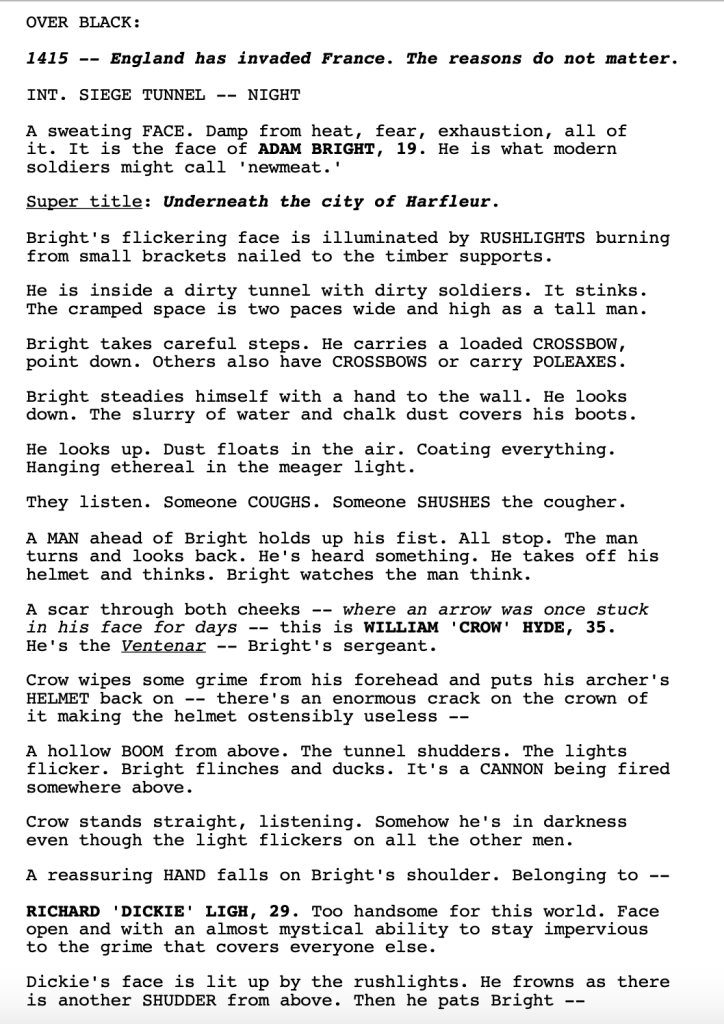Search Results for: girl on the train
Man, we had some Disney BOMBS dropped yesterday. I guess that’s what happens when you wait nine months to give us any movie news. I honestly believed the rest of my movie news life was going to be daily updates up of the latest actor to join Bullet Train. Last I checked, Steve McQueen was joining the film. I have a feeling they’re going to have to recast that part.
I’m thinking of a Mish-Mash Monday dedicated solely to talking about those announcements. If that sounds like something you’d like, let me know in the comments.
In the meantime, we’ve got another Last Great Screenplay Contest Showdown. We have three winners already. We need a fourth. Those four winners will duke it out next week in our “Super Showdown,” where the winner will become an official finalist in my contest. So there’s a lot on the line.
The rules are the same as any Amateur Showdown. Read as much of each entry as you can then vote for your favorite in the Comments Section. It’s VERY IMPORTANT THAT YOU VOTE. You could be changing someone’s life. Votes are due in the Comments Section by Sunday evening at 11:59pm Pacific Time.
Good luck everyone!
Title: IN A FIX
Genre: Thriller
Logline: Amid growing tensions with a rival gang, a fixer must quit her job before her controlling crime boss discovers she is pregnant.
Title: Violet Sun
Genre: Horror
Logline: Born with a severe allergy to sunlight, a maladjusted teenager struggles to cure his disease by consuming the healthy blood of unsuspecting victims so he can win back the girl of his dreams before she leaves his life forever.
Title: POSSESSIONS
Genre: Horror
Logline: An estranged daughter returns to her childhood home to help with her mother’s extreme hoarding only to discover her mother’s cursed by one of her many, many possessions.
Title: Orbit
Genre: Action/Sci-Fi
Logline: When estranged father and daughter astronauts are trapped alone on a sabotaged space station, they must overcome their differences and injuries to stop the wreckage from causing an extinction level event on Earth.
Title: Step Seven
Genre: Psychological Horror
Logline: A woman in an addiction recovery center must decide if the ghost that haunts her each night is a delusion or a spiritual warning of the fate that she is about to suffer.
22 screenplays on The Last Great Screenplay Contest bubble are duking it for a slot in the finals. Congratulations to Colin O’Brien, whose script, “Our Hero,” won the first Contest Showdown. And then last week, Kevin Revie won his showdown with the ultra-buzzy “Bad Influence.” That makes this showdown our third week, and it is once again up to you to read as much as you can of each screenplay and vote for your favorite in the comments!
It’s IMPORTANT THAT YOU VOTE. A screenwriter’s career may be on the line. As well as my producing career. Votes are due in the Comments Section by Sunday evening at 11:59pm Pacific Time. The script with the most votes moves on to the Super Showdown.
Title: Get Woke
Genre: Buddy-comedy
Logline: An old-school police officer joins forces with his tech-savvy teenage daughter to crack the case of a social media influencer’s cyber stalker.
Title: The Living Conditions
Genre: Horror/Romance
Logline:With her boyfriend’s help, a young woman going through a monstrous transformation searches for the one responsible in hopes of reversing the effects, all while evading capture and resisting her newly acquired “urges”.
Title: Unchained
Genre: Action
Logline: Two fallen out sister-soldiers must reunite and reconcile as they fight their way through a train of mercenaries to reclaim a mysterious WMD-classified object that drove them apart — before the ride reaches its destination.
Title: Shalloween
Genre: Comedic Slasher
Logline: When all the hottest girls in a small town get slaughtered by a masked serial killer, a social media influencer obsesses over why she’s not hot enough to murder, and starts looking for an alternate explanation for the killings.
Title: Archer
Genre: War
Logline: 1415 — As the English army marches towards doom in the greatest battle of the medieval age, a young archer seeks redemption for his past under the cruel tutelage of his ruthless and invincible sergeant. A medieval FURY meets PLATOON.
Genre: Period
Premise: Set in 1862, after his sister is kidnapped by soldiers, a half-white, half-Comanche teenager teams up with several members of his tribe to track the soldiers East in an attempt to rescue her.
About: Today’s script finished with 6 votes on last year’s Black List and has a pretty good pitch – from the Black List: “A reverse SEARCHERS from the perspective of the Natives going East into the unknown, the metropolis, the belly of the beast, late 1800s New York City.” Screenwriter, Esteban Orozco, has written several successful TV shows, the most popular of which is “El Chapo” on Netflix.
Writer: Esteban Orozco (based on a story by Esteban and Felipe Orozco).
Details: 6/29/19 draft (107 pages)
I got the message loud and clear yesterday.
Superhero = bad.
Bad, Carson!
So I decided to go 180 degrees in the other direction. The only superpower you’re going to see in today’s script is the power to watch pretty sunsets. The power to ride wild horses. The power to eat buffalo meat.
The year is 1862.
The Comanche tribe’s numbers are dwindling. Just a few decades ago, they had all the buffalo they could devour. Now, the herds have dwindled, creating a situation where the last active nomadic tribe in America has to constantly be on the move in order to stay fed.
That’s how we meet them in this story, settling in an area where there were SUPPOSED to be buffalo, but there are none. The Chief is yelling at his main buffalo guy, Yapa, about it. Now they’re going to have to move AGAIN.
The Chief thinks his half-white son, 14 year old Naconi, should be on the next hunting trip. They head north, finally run into some buffalo, but Naconi makes a crucial mistake and almost gets himself and the best hunter in the tribe, Quan, killed. He’s so embarrassed that the very next night he hops on a horse, determined to leave the tribe forever.
However, his 8 year old full-Comanche sister, Etenia, sees him and follows him out. After he tells her to go back home, several members of another tribe take her. And then that tribe is attacked by American soldiers, who take her.
Once it’s determined that not only did American soldiers take Etenia, but that they’re heading east fast, the Chief teams Naconi up with Quan, Yapa, their medicine guy, and 15 year old Tenewa, a young female warrior who thinks guys are gross. They will be tasked with getting Etenia back.
The group tracks the soldiers all the way to Oklahoma City, where they learn they’re too late. The soldiers boarded a train and went back to New York City. Team Comanche has never even seen a train before. And they realize that going to New York is suicide. Comanches are not thought of well during this time. But Naconi is determined to right his wrong, and lead the group into the belly of the beast.
Simple story. Complex characters.
Let me say that again.
Simple story. Complex characters.
This is the recipe for most great screenplays.
Lots of writers are afraid to give you a narrative this simple – “Go retrieve sister” – because they believe that great writing needs to be complex and multi-layered and have twelve themes running underneath it at all times. Complexity has its place in writing. But it’s best saved for the characters. Give us someone like Beth in The Queen’s Gambit who had this crazy mom who tried to kill the both of them and she’s a math genius and she feels no emotion and she’s thrust into the world of a sport dominated by the opposite sex. There’s so much to delve into character-wise there that you don’t need a bunch of complex plotting.
Ironically, we have the same thing going on today that we did yesterday. A young girl has been kidnapped. That’s not a coincidence. The reason so many writers do this is that it creates a simple, powerful, narrative that’s easy to understand.
One of the problems I’m constantly running into with the contest submissions is that I’m getting confused about what’s happening. And that’s just in the first 10 pages! I can only imagine how lost I’d be if I had to read all of these scripts cover to cover. Writers are obsessed with cramming a million things into the first ten pages and then they’re surprised when you can’t keep up.
I was so at ease reading this because I understood what was going on immediately.
Another thing I like in scripts is when the task seems impossible. The more impossible you make it, the better. Orozco establishes early on the Comanche are persona non grata. They have a bad reputation with Americans so when they’re caught, they’re killed. Or enslaved. And now you’re telling us that, in order to save this sister, we have to go to the most populated place in all of America?? Of course I’m going to keep reading to see what happens.
However, Nomads makes a crucial structural error that keeps it from reaching double worth the read status. It puts us in New York City a little after the midpoint.
Yikes.
Why is this an “error?” Well, the script is designed around geographical momentum. We’re physically getting closer and closer to our destination, encountering obstacles along the way. Once you put us in New York City, there is no more movement. It’s all waiting. Waiting sucks away plot momentum. And the script nosedives as a result. It’s clear Orozco doesn’t quite know what to do because, after having his characters set up shop in a warehouse, days start going by. Then weeks. Then whole seasons!
Waiting…waiting…waiting…
What do I always say? WAITING NARRATIVES ARE HARD TO MAKE WORK. And here they’re waiting for some ship to come into port that they heard Etenia is going to be placed on. So Etenia is actually somewhere around them, but they don’t know where. Yet they hear she’ll be put on this ship once it arrives. So they have to wait for that ship. A quick Carson consultation could’ve solved this issue pronto. This decision killed much of the story’s momentum.
So when should the plot have got to New York? It’s simple. The third act! The break into the third act is when you want to get to your final destination. From there, you still have 25 pages to have them locate the sister and rescue her. That’s plenty of time.
This script was good. But it could’ve been really good.
[ ] What the hell did I just read?
[ ] wasn’t for me
[x] worth the read
[ ] impressive
[ ] genius
What I learned: I find that some writers are reluctant, when writing period pieces, to include urgency. I get it on some level. The further back you go in time, the slower the world was. So it seems inauthentic to add some highly urgent timeline. I mean, it took 4 days by train to get to New York from Oklahoma. If they get to New York and learn that they only have 30 minutes to save Etenia, the audience would be like, “Excuse me, what?” HOWEVER, that doesn’t mean you should employ the opposite tactic – giving your heroes months to “solve the crime.” The way you want to do it is to add as much urgency as is acceptable in that time period. I think a few days would’ve been perfect. It still seems like time is running out in 1864. But it’s not so immediate that it comes off as unrealistic.
A few weeks ago I read the Black List rom-com that sold to Sony, Voicemails for Isabelle. It was easily the best rom-com I’ve read in years. The dialogue, in particular, was great. I said in that review that I would leave a voicemail for Leah and, what do you know, she replied! So we got on the phone and talked all things “Isabelle.” Leah was really forthcoming with her answers, which led to a great conversation. A little background here. Leah was an actress first. So you’ll see us referring to her acting throughout the interview. I also wanted a lot of dialogue advice so I asked a bunch of dialogue questions. Enjoy!
CR: The state of rom-coms in the last 15 years has been pretty bad. I think it’s because the genre is so inherently formulaic. How do you, Leah, approach the genre in order to stand out?
LM: I didn’t really know what I was doing and, in a lot of ways, that was my saving grace. Not just in rom-coms but in writing. I have no training in writing. And I agree with you. They’re so formulaic. I’ve seen a lot of rom-coms so I know the structure I have to follow in order for the audience not to get angry with me. But on some level I try to infuse it with some story about humans and sisters – my sister is my life and my love and my biggest supporter.
CR: And the inspiration for the story, I’m assuming.
LM: Yes, so what happened was I moved to LA to become an actress and my sister stayed in New York and I would leave these long voicemails to her late at night hoping to make her laugh. Or detail a terrible date. And in a lot of ways they became these confessional moments for me. The story was born out of that. I don’t know how to “write a rom-com.” All I focused on was telling my story. (for those curious, Leah’s sister is alive and well, so no tears need to be shed today)
CR: You reference a lot of rom-coms in the script so I think you know the genre better than you’re giving yourself credit for.
LM: Maybe! Yeah, I guess I do. I kinda feel it in my bones a little bit. Like I know at a certain point, “She needs to lose the guy here.”
CR: So your writing is instinctual?
LM: Yeah, that’s how I’d put it.
CR: How did you sell the script to Sony?
LM: This is going to be a long answer because it started back when I wrote and produced my first indie film, M.F.A. (a film about a rape at college). Cause I was running around asking everyone “How do you get an indie film financed?” And I would read all these sites and nobody would give me any concrete answers. So I would ask friends, “How do you do this?” And they would say, “Oh, you’ll find people,” And I would say, “But where are the people?” [laughs]
So I bought all the “How to Finance A Film” books and they weren’t very helpful either. None of them gave you a clear path on what you were supposed to do. Finally, I told everybody I knew that I was making a feature film and did they know anyone who’d be interested in investing in it. It was a slow process. Lots of dead ends. Lots of ‘this person leading to this person.’ But little bit by little bit we cobbled it together and shot it for $250,000, which included all the money I had at the time. The film got into South by Southwest and that gave me some legitimacy as a writer.
CR: Wow, you went all in.
LM: [laughs] I went all in in a way I do not recommend. Whenever filmmakers tell me they’re going to max out credit cards to make their film, on some level, I’m like, “Yeah! Do it or die!” On another level I’m like, “Self-care is important. Don’t do what I did.” [laughs] Because I came out of it so destroyed. I mean, in the midst of making that movie I was in so much pain because I was not eating. I was running on adrenaline. I ended up at the urgent care center. Anything that went wrong on the movie I took so personally in a way that you shouldn’t. I just want to say to people that I don’t think you should have to kill yourself for a movie.
CR: Yes, killing is bad.
LM: Right, and from that, I got my first literary agent. As well as my literary manager. And I got sent on the water bottle tour. Which is you go and you meet every single production company who liked your movie. And they’re all like, “What do you want to do next?” And I didn’t understand what I was doing at any of these places. I didn’t understand that I was supposed to be [laughs] pitching things. So I was sitting there thinking it was a friend date. I’m chatting and drinking my free coffee. So I said, “I don’t know what I wanna do next. Something cool I hope.” And I’m like, “Are you going to hire me now? What is happening?” And they all said, “Well, we’ll stay in contact.” And I was like, “Cool, we’ll stay in contact. Whatever that means.” [Carson laughs]
So during that tour, I met a producer named Becky Sanderman and we became really good friends. Becky pitched a TV show to me called, “What The F*ck, Glenn” about a mother dealing with her husband committing suicide. So I wrote that and that got me connected with Becky and Escape Artists, who are on the Sony lot. That led to me writing a father-daughter zombie project. And, for the first time in my life, I had a million voices giving me notes and I didn’t know how to handle it. Cause keep in mind, I was the only voice on M.F.A. I got so frustrated by the process that, in an act of rebellion, I wrote Voicemails for Isabelle. And one day Becky asked me if there was anything else I was working on and I told her about Voicemails and she said, “You are sending that to me as soon as you finish it.” And that’s what led to Sony buying it. I know that’s a long answer but I also know how frustrating it is for writers trying to understand how something gets sold so I wanted to be as detailed as possible.
CR: I’m not surprised it sold. I think you have a really strong voice, particularly your dialogue. Can you tell me your general approach to dialogue?
LM: My acting teacher John Rosenfeld always said, “Your characters are not as emotionally articulate as you.” People are not emotionally articulate most of the time. If you know that a character is heartbroken or sad, that doesn’t always come out as “heartbroken” and “sad.” People will try to play every emotion before they do that. They will get angry. They’ll be mean. They will turn it into a joke. So I very rarely play act a true darkness. We’re always trying to avoid that as humans. So a lot of times in my script where something sad has happened, there’ll be a scene that’s funny. I don’t do a lot of, “She cries and he holds her.” I don’t find that in my own life very often [laughs]. So I don’t write it.
Actors are also trained to observe people. So I’m always watching and listening and if I hear a good line, I write it down and make sure it gets in a script. For example, the other day a friend and I were looking at places to eat and we found this one restaurant that had these delicious looking noodles and he said, “Mmm, my mouth is hard.” I thought that was so funny. So the next time I have two characters in a food situation, they’re not going to say, “Mmm, that looks delicious.” They’re going to say, “Mmm, my mouth is hard.”
CR: That works in a comedy, obviously. But what about when you’re writing M.F.A., which is about a campus rape? How do you keep the dialogue interesting when you can’t depend on humor?
LM: Good question. I try to subvert familiar situations when I can. The scene that everybody brings up in M.F.A. is when the lead character, who’s been raped, goes to a “Feminists on Campus” meeting hoping for support. But when she goes to this gathering, she doesn’t get this outpouring of emotion or comfort. Instead, the girls were like, “Oh my God. Hash Tag Feminsim!” “We should do a bake sale.” “Oh yeah, we should provide a nailpolish where if you stick your finger in a drink it shows you if it’s been drugged.” “Ooh, good idea!” So it goes against what the main character is looking for in the scene and what the audience is expecting from the scene.
CR: What do you think the difference is between good and bad dialogue?
LM: Bad dialogue is often too literal. Too robotic. It has too much information. What is that word called? I have this list of words I always have to check.
CR: Exposition?
LM: Exposition! I’m a writer. I swear. That’s the thing that kills me. When there’s too much exposition. When a writer is doing too much telling and not enough showing. I’m such a big believer in show don’t tell.
CR: What do you mean by that because if you’re showing, you’re not writing dialogue.
LM: For example, if someone is heartbroken, they shouldn’t say, “I’m heartbroken.” If she’s in the room with the guy who broke her heart, you want to focus on how she won’t make eye contact. Or the guy doesn’t make eye contact. That sort of thing. No character who’s in pain should ever have to say that they’re in pain. We should be able to feel that through their actions.
I have this writer friend I’ve been helping and his characters explain everrrryyyyyyyy-thing. I’ve told him you need to cut all of this waaaaaaaay down. What isn’t being said is far more interesting than what is being said. Humans rarely talk about their emotions. They avoid emotions.
CR: Not a lot of writers are blessed with a natural comedic ability but they’re still required, at times, to write comedic scenes. How does one write funny dialogue?
LM: I don’t know. I tend to go with “TMI.” The things that would be so awkward if you said them but you’re still thinking them? Having your character say those things has always been a guide for me. A lot of times my characters are sort of irreverent and say the wrong thing. They very rarely say the right thing. If you could’ve done it over, you would’ve said it better. But there’s so much humor in the person reaching for the right thing and coming up short. There’s this great quote: “Funny people are just really observant.” I think that’s true.
One of my favorite movies is Little Miss Sunshine and my favorite scene is when the main girl says, “Grandpa, am I pretty?” And he says, “You’re the most beautiful girl I’ve ever seen in my whole life, I’m completely in love with you. And it’s not because you’re intelligent, it’s not because you’re nice, it’s completely because you’re so beautiful.” And I love that so much because it’s a little inappropriate for a grandpa to say to his granddaughter. And you’re not supposed to tell a little girl that her heart and her intelligence do not matter. But it’s so true and so honest that that’s how he handled the question. That is the kind of s*#t I want to write.
CR: My favorite scene in Voicemails was the meet-cute scene between Jill and Tyler. What I noticed about that scene was that the characters rarely said what you expected them to. They always seemed to say the opposite of what they were supposed to say. How did you approach that scene?
LM: I’ve never told this to anybody. When I got to LA as an actress, I started writing things secretly. I didn’t know how to write a screenplay but I understood how to write a scene. So I would write these little scenes. And I had written that meet-cute scene during that time. It wasn’t inspired by anything other than my own life – moving to Hollywood. Trying to navigate the town. Anyway, many years later when I was writing Voicemails, I stumbled across that document with all the old scenes in it and I found that scene and I thought, “Hmm, that’s pretty good!” And I pasted it into Voicemails without changing a whole lot. But that was a real revelation for me because I realized, you might not know how to write a script, per se, but it doesn’t mean that you don’t know how to write or that you don’t have talent as a writer. It’s really validating to hear that that was your favorite scene cause that’s one of the first things I ever wrote.
But yeah, if I analyze why that scene works now, I think it’s because they’re pushing each other, testing each other, and that’s where the fun banter comes from.
CR: Any last dialogue tips you can give us? For that writer out there who never gets complimented on their dialogue?
LM: Hmmm. People don’t generally speak in complete sentences. It’s difficult for people to have complete thoughts in the moment. They stutter. They start making their point only to realize they’ve messed up and double back. They struggle to get to the point. They say very inappropriate things along the way. The big thing for me is the verbal diarrhea character. Their own honesty is a plague for them. If it’s comedy, I’d say honesty is your best friend. The uglier and grosser and more grotesque the answer is, the better. And if it’s a dramatic scene, have your characters struggle with their pain. Struggle to hide the truth. The elephant in the room is the true emotion. But they should play EVERY OTHER emotion before going to that one. It’s so much more interesting to watch a person try not to cry than to watch a person crying.
And if I could give one last piece of advice, I would encourage writers to not wait around for permission. Try to get your own stuff made. And I’m not just talking about getting a film made because I know films are expensive. But I did a 7 episode web series when no one would give me the time of day. I wrote six short films with parts for me as an actress. I always hustled and never waited around. I think that’s the reason for any success I’ve had. You can do the same. You can put two actors in a car with some green screen and shoot it on an iPhone for nothing. What’s your excuse? You can do it!
Is Chaos Walking as bad as the trades are making it out to be? Or is this Charlie Kaufman scripted adaptation secretly genius?
Genre: Sci-Fi
Premise: A boy and girl go on an adventure together in a world where everyone can hear each other’s thoughts.
About: The famed Chaos Walking!!! Based on the best-selling book. The movie that has been edited and re-edited, reshot, double reshot and triple reshot. The movie that Linosgate is determined to get right no matter what. Daisy Ridley joined the project, in large part, because she was a fan of the book. Tom Holland came on board once he learned that he’d be acting opposite Rey Kenobi. After recent reshoots that totaled 15 million dollars, the film is slated to come out at the beginning of next year.
Writer: Charlie Kaufman (based on the novel by Patrick Ness)
Details: 134 pages!
Chaos Walking is one of the most troubled productions in Lionsgate’s history. It’s just been, well, chaos. This despite the film having such a cool cast. Adding a bit of wackiness to the proceedings, one of the most original voices in the industry, Charlie Kaufman, was the first writer hired for the project.
He adapted Patrick Ness’s novel, who had an interesting inspiration for the story which he laid out in a Publisher’s Weekly interview: “I live in England so I take a lot of trains, and you can’t really go anywhere without somebody talking on their mobile phone behind you, forcing you to listen to their conversation. With the Internet, with texting, with networking sites, there’s already information everywhere. The next logical step is, what if you couldn’t get away? How difficult would it be if you could hear what everyone was thinking all of the time? And how much more difficult if you were a teenager, when your thoughts are tumultuous, when privacy is important? I thought this would be pretty awful. So that’s where it started, with the idea of information overload.”
Todd is going to be 13 soon and being 13 in this world makes you a man. What world is that? I have no idea. I thought it was earth at first but apparently there are two moons so unless a new moon showed up uninvited, I’m guessing this is an alien planet.
Speaking of, there’s something everybody experiences on this planet called “noise.” Not the noise you and I are accustomed to. The noise on this planet includes the thoughts of everything. People. Animals. Trees. If something is alive it gives off thoughts and you have to listen to them whether you want to or not. Sort of like if your annoying little sister never shut up. But she was a cactus.
Todd deals with this by talking a lot. To himself. To his stupid dog who he hates. To his foster dads. Todd talks A LOT. And he usually yells when he talks. I don’t know if he’s trying to do a Chris Farley impression or he’s doing it to drown out the noise.
But none of that matters when Father 1 comes up to him and tells him that everything he knows is a lie! That the Mayor of Prentisstown is evil and wants to do horrible things to Todd. That is why his mother left a diary with a map. Todd must go where the map tells him to go to find… I don’t know? Happiness maybe?
Luckily, he meets a girl, Viola, along the way. By the way, all the women on the planet have been killed by an alien virus. So finding a girl is a big deal. The girl doesn’t seem to be able to hear the “noise.” Nor can he hear her thoughts. And since she doesn’t talk much, she’s a big fat mystery to him.
The two head to the next town where Todd runs into more women. This is what solidifies that, yes, he’s been lied to A LOT. But why? Just as he asks that question, the town is attacked by the Prentisstown army. Todd and Viola (and the dog! ruff!) are forced to flee. They are now on a full-fledged Lord of the Rings level journey. Will they find what they’re looking for? I sure as heck hope so.
There are two ways to look at why this project has become such a headache for Lionsgate.
The first is that you adapted an unfilmable story. Just the act of having a constant stream of talking at all times during your movie is a recipe for disaster. That’s literally torture for an audience. And my guess is that that was the biggest issue in the infamously bad test screenings for the movie.
On top of that, you have this secondary “noise” of seeing imagery of things people have done in their past. So if you run into a guy who’s killed someone, you see an image of them killing that person. Combined with, maybe, them picking apples earlier that day. It’s not clear how these images appear. But I guess they show up right next to the person’s face like translucent video. From a movie-perspective that sounds disastrous. It just seems like it would look weird.
So you have something that’s potentially annoying combined with something that’s potentially silly present in the movie at all times – yeah, that sounds like the kind of thing that could cause bad test screenings.
The other way to look at this is that many of the best movies tried something that had never been done before. As weird as Chaos Walking is, the one thing I give it is that it’s trying something new. It really is trying to reinvent the language of cinema. Sort of like the way A Quiet Place played with silence, this is playing with noise.
Regardless of these ambitions, there should only have been one version of noise – sound. This is something I talk about all the time when writing sci-fi and fantasy. You don’t want to make the rules too expansive. That’s how you lose audiences. It’s literally called “noise.” It’s SOUND. Why are you adding a visual component?
How should I explain this? With every additional component of mythology you add, you are taking time away from other components. If you only have the one thing – that everybody hears each other – it’s easier for us to follow along and you can explore that one thing in as much detail as you want.
And hearing thoughts you’re not supposed to hear is full of dramatic possibilities. If that’s the only thing you have to figure out, you can make that work. It’s all the weird wonkiness that Ness added on top of that that’s thrown this story out of orbit.
Why do all women have to be dead??
Why are we on another planet?
Ugh! I get so angry when writers over-complicate things when they don’t have to. Cause that’s one of the quickest ways to tanking a story – over-complicating it. I know it’s tempting with this genre. You want to show us how imaginative you are. But resist the temptation! Keep it simple!
The funny thing is that when you listen to Ness talk about the book, it sounds great. He’s smart and he’s clearly thought all this through. But then you read it and it’s overly complicated and dumb. It’s not the disaster that the media made it out to be. But it still doesn’t work. It’ll be interesting to see what it’s become because they hired every big name writer in the business to come in and fix this thing. I think they really want it to work cause they know they have that killer cast combo of Tom Holland and Daisy Ridley.
[ ] What the hell did I just read?
[x] wasn’t for me
[ ] worth the read
[ ] impressive
[ ] genius
What I learned: Patrick Ness on how he crafted his villain, Mayor Prentiss – “I don’t like people who are just monsters. I think that lets us off the hook, because you think, well, I don’t have to worry about him because he’s just a monster and that’s not how a real human would act. I try to keep him as a man who through various circumstances simply went wrong. Basically, I like to believe that everyone can be redeemed. The potential for redemption has to be in everybody, otherwise there’s no hope for us. Now whether he wants to be redeemed, that’s a different question, but the possibility needs to be there. There’s still some humanity in him somewhere. I think that makes him more interesting as well, because a pure psychopath, a pure monster, is fun, but limited.”
What I learned 2: Ness did something really interesting in the book. He decided when he created Todd that Todd would never say a line of exposition. That he would only say what a real boy would say in that moment. That’s a great writing challenge. To write a main character who isn’t allowed to explain anything. Cause that’s where dialogue becomes the most stilted – when characters are forced to expose things.

